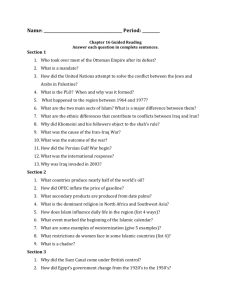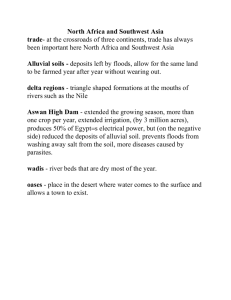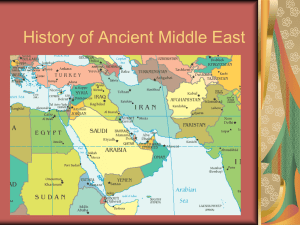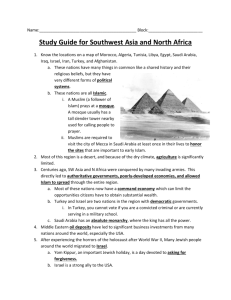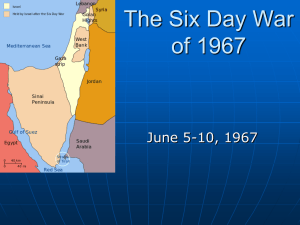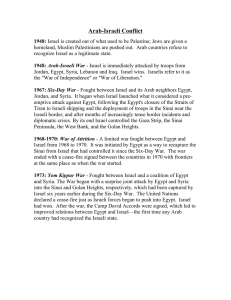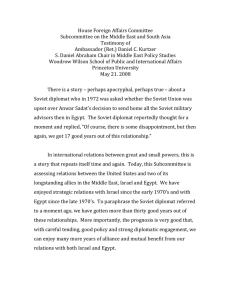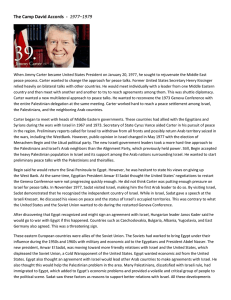AP World Final Exam Review
advertisement
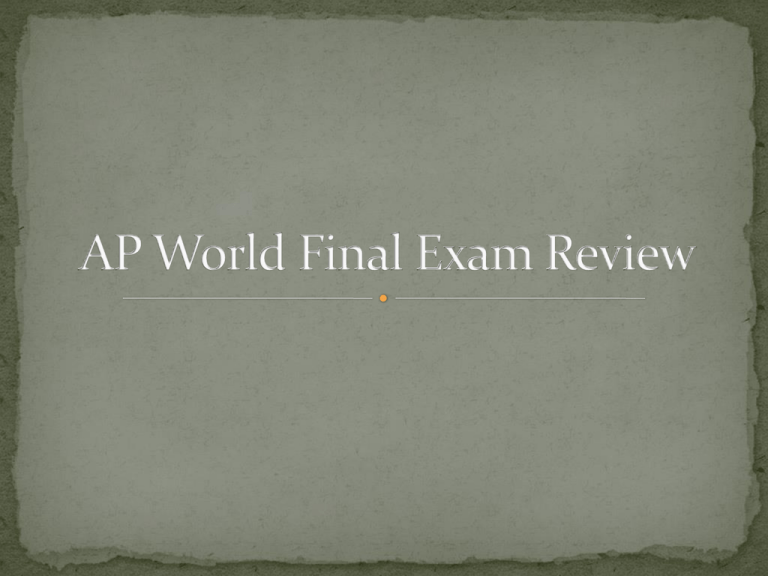
Causes Marx, Lenin, Nicholas, Rasputin, Alexander Kerensky, Trotsky, Stalin Outcome Indian nationalist leader. where he spent 20 years opposing discriminatory legislation against Indians. Promoted mass non-violent civil disobedience He supported the Home Rule movement, and became leader of the Indian National Congress, advocating a policy of non-violent non-co-operation to achieve independence. His goal was to help poor farmers and laborers protest oppressive taxation and discrimination. He struggled to alleviate poverty, liberate women and put an end to caste discrimination, with the ultimate objective being selfrule for India. First Prime Minister of an independent India Father of Indira Gandhi US Involvement Treaty of Versailles Meeting among leaders of the U.S., Britain, and USSR in 1945 Discussed post war Europe Help to establish an independent Turkish republic in 1923. Modeled reforms off of Western ideals New Latin alphabet Woman’s suffrage a Turkish nationalist reform party in the early twentieth century, favoring reformation of the absolute monarchy of the Ottoman Empire. Borrowed at some of their ideas from the earlier “Young Italy” their leaders led a rebellion against Sultan Abdul Hamid II They ruled the former Ottoman empire from 1908 until the end of World War I in November 1918. 1958 Efforts by Mao to revitalize the flagging revolution by restoring its mass, rural base. Emphasis was place on self-reliance within the peasant communes The Cultural Revolution is the name given to Mao’s attempt to reassert his beliefs in China Mao deliberately set out to create a cult for himself and to purge the Chinese Communist Party of anyone who did not fully support Mao This is the Japanese term for the industrial and financial conglomerates that controlled much of the nation’s industry. influence and size allowed for control over significant parts of the Japanese economy from the Meiji period until the end of World War II. set of companies with interlocking business relationships and shareholdings. It is a type of business group. The keiretsu maintained dominance over the Japanese economy for the greater half of the 20th century, but are beginning to lose their grip Head of Revolutionary Alliance, organization that led the 1911 revolt against the Qing dynasty in China Briefly elected president in 1911, but yielded in favor of Yuan Shikai in 1912 Created Nationalist party of China in 1919; died in 1925. Polish politician who co-founded the solidarity trade- union movement Persecuted by the Polish communist government Robert Oppenheimer is often called the father of the atomic bomb He was the guiding physicist in the development of the atomic bomb an influential American painter and a major figure in the abstract expressionist movement an American artist who was a leading figure in the visual art movement known s pop art. Japanese writer His works, strongly influenced by French and American literature and literary theory, deal with political, social and philosophical issues including nuclear weapons, nuclear power, and social nonconformism How did European colonialism affect Africa? The economically powerful city nation-states in south East Asia that came into formation in the last half of the 20th century. (Hong Kong, Taiwan, Singapore and, South Korea.) Pol Pot Cambodian Maoist revolutionary who led the Khmer Rough from 1963-1998 Imposed agrarian socialism: forced urban dwellers to relocate to the countryside to work in collective farms and forced labor projects Genocide 21% of the population died 1.7-2.5 million people out of 8 million died from starvation or executions 2nd President of Egypt 1956: Egypt vs. Britain, France, and Israel Nationalized the Suez Canal Israel vs. Jordan, Egypt, and Syria Israel won Took Gaza Strip and Sinai Peninsula from Egypt West Bank and East Jerusalem from Jordan Golan heights from Syria Israel attacked by Arab states led by Egypt and Syria on Yom Kippur U.S. and U.S.S.R supplied each side, almost coming into direct conflict with each other Israel Wins Humiliates the Arab World and show Israel that they are vulnerable to attacks



